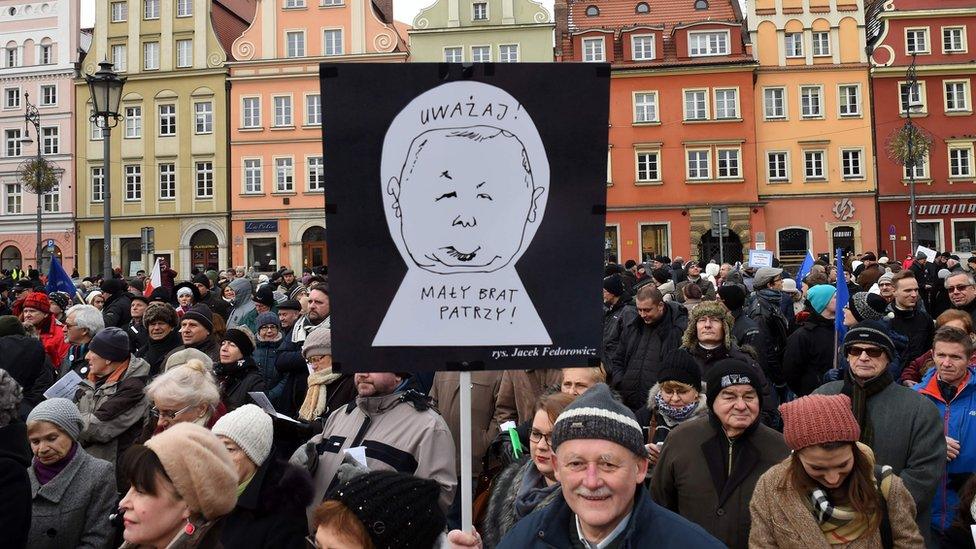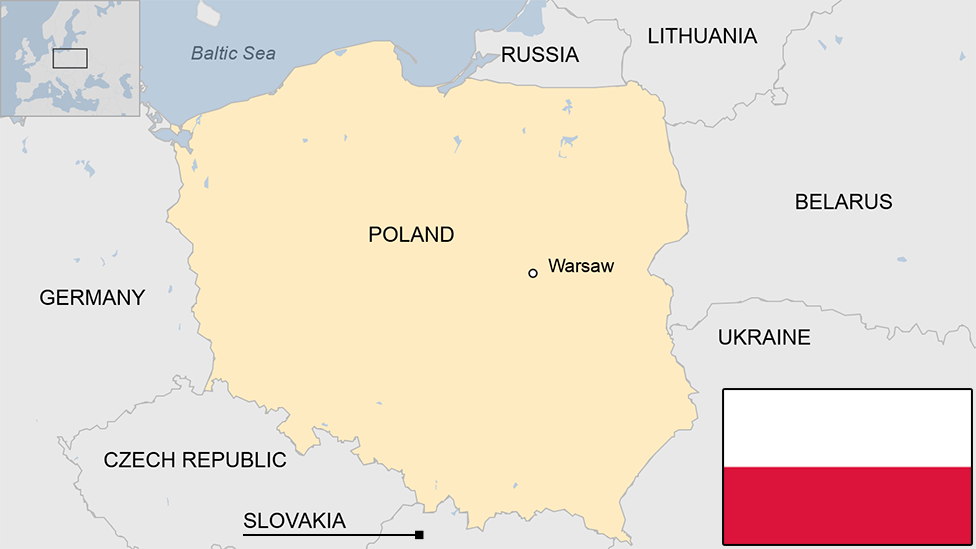Poland surveillance law approved by president
- Published

At a recent protest, opponents of the bill had posters that read: "Watch out, the little brother is watching you"
A new law expanding government surveillance is set to come into force in Poland, despite privacy concerns.
President Andrzej Duda's office said he approved the legislation on Thursday.
The European Union is investigating if Poland - one of 28 member countries - has breached its standards by passing controversial laws on the Constitutional Court and public media.
The most recent law will expand government access to digital data and loosen restrictions on police spying.
Thousands of Poles have held street protests against the changes, which Amnesty International called "a major blow to human rights".

Polish Prime Minister Beata Szydlo defended the laws during a recent debate at the European Parliament
The conservative Law and Justice (PiS) party, which was elected with a majority last October, says the threat of terrorism justifies increased surveillance powers.
Although the government said the bill was amended after a Constitutional Court ruling that it was too vague and without adequate legal controls, Poland's Ombudsman believes parts of the law remain unconstitutional, Reuters news agency reports.
Under a new PiS-sponsored law that came into force last year, a two-thirds majority is now needed to pass constitutional court rulings.
The Polish government has also been given the power to appoint and dismiss the management of public broadcasters, raising concerns about media independence.
European Parliament President Martin Schulz referred to the changes as a "dangerous Putinisation of European politics" - a reference to Russian President Vladimir Putin.
Is Poland being 'Putinised'?
- Published7 January 2016

- Published13 January 2016

- Published20 January
